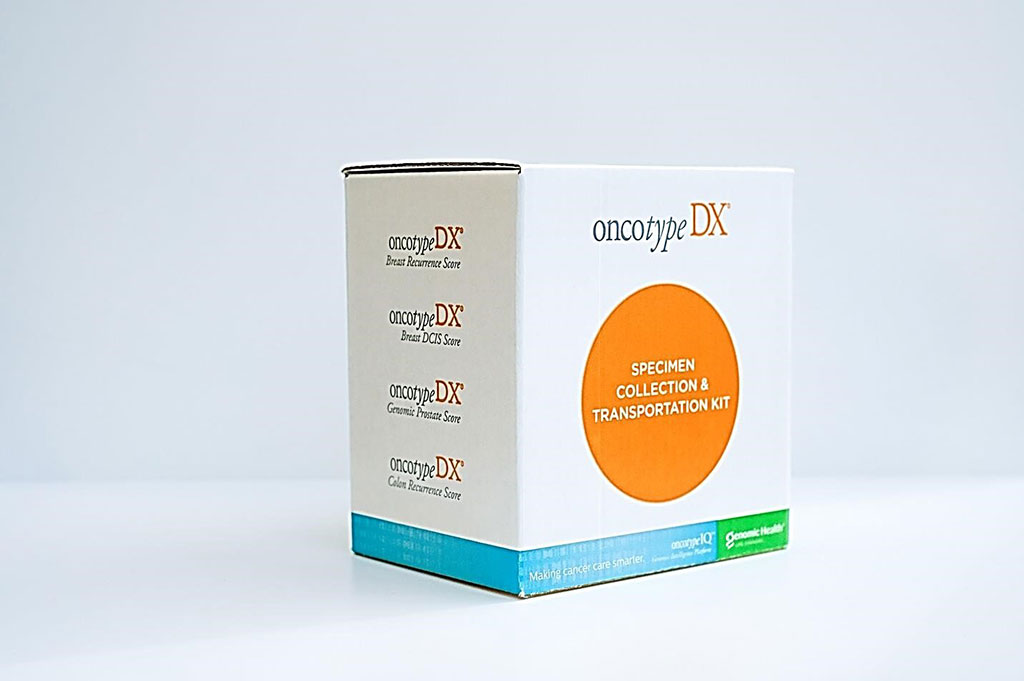Gene Genomic Prostate Score Test Evaluated as Prognosis Predictor
By LabMedica International staff writers
Posted on 13 Jul 2020
Molecular assays, including multi-gene expression assays, are increasingly used clinically to improve risk stratification for men with newly diagnosed prostate cancer (PCa). Posted on 13 Jul 2020
The problem for men with unfavorable intermediate (UFI)-risk PCa is that until now, the lack of definitive knowledge about this particular subtype has made it almost impossible to opt for active surveillance, despite the fact that some of them end up with less aggressive disease.

Image: The Oncotype DX Genomic Prostate Score (GPS) test is a strong independent predictor of prostate cancer-specific death and disease progression (metastases) at 10 years in men with localized prostate cancer (Photo courtesy of Genomic Health).
Cancer specialist at the Case Western Reserve University (Cleveland, OH, USA) and their colleagues analyzed the associations multi-gene expression assay with results with biochemical recurrence (BCR), distant metastases (DM) and prostate-specific death (PCD) in two cohorts of men with UFI prostate cancer who were treated with radical prostatectomy. The analyses included 299 intermediate-risk prostate patients, 175 of whom had UFI-risk disease; 103 from the Kaiser Permanente Northern California (KPNC) cohort and 72 from the Center for Prostate Disease Research (CDPR) cohort.
The assay used in the study was the Oncotype DX Genomic Prostate Score (GPS), (Genomic Health, Inc, Redwood City, CA, USA). The test is a quantitative reverse transcriptase polymerase chain reaction assay that measures the expression levels of 17 genes (12 cancer-related and five reference) in messenger RNA extracted from microdissected tumor tissue obtained from fixed prostate needle biopsies. It provides a GPS result scaled from 0 to 100 as a molecular measure of increasing tumor aggressiveness. It has been analytically and clinically validated as a significant independent predictor of multiple endpoints in men with newly diagnosed low and intermediate risk PCa.
The scientists reported that the GPS result as a dichotomous value (≤40 versus >40) was a significant predictor of BCR in UFI patients in multivariate analyses (hazard ratio [HR] 6.0; 95% confidence interval [CI] 2.0-22.4). The GPS result was a strong predictor of all three endpoints in multivariate analyses: BCR = HR 7.1; DM HR= 5.4; PCD HR =3.4. UFI patients with GPS >40 had outcomes consistent with high-risk disease, whereas UFI patients with GPS ≤40 had outcomes similar to FI risk patients (CPDR/KPNC).
Jennifer Cullen, PhD, MPH, an Associate Professor and the lead author of the study, said, “No one had focused specifically on unfavorable intermediate. And that's important because there is a gray zone, a very murky area, in knowing how aggressively to treat that disease, because we don't know if it's going to behave more like high-risk disease or more like favorable intermediate-risk disease. You are always trying to strike a careful balance between preserving oncologic outcome and sparing patients decrements in quality of life. So, there's this very careful discussion and balance that patients and doctors have to strike in deciding what treatment course to pursue for men in that gray zone.”
The authors concluded that the GPS result was a strong independent predictor of BCR, DM, and PCD in intermediate risk prostate cancer. UFI patients with GPS >40 have a poor prognosis and may benefit from additional therapeutic options. The study was published on June 7, 2020 in the journal Urology.
Related Links:
Case Western Reserve University
Genomic Health














